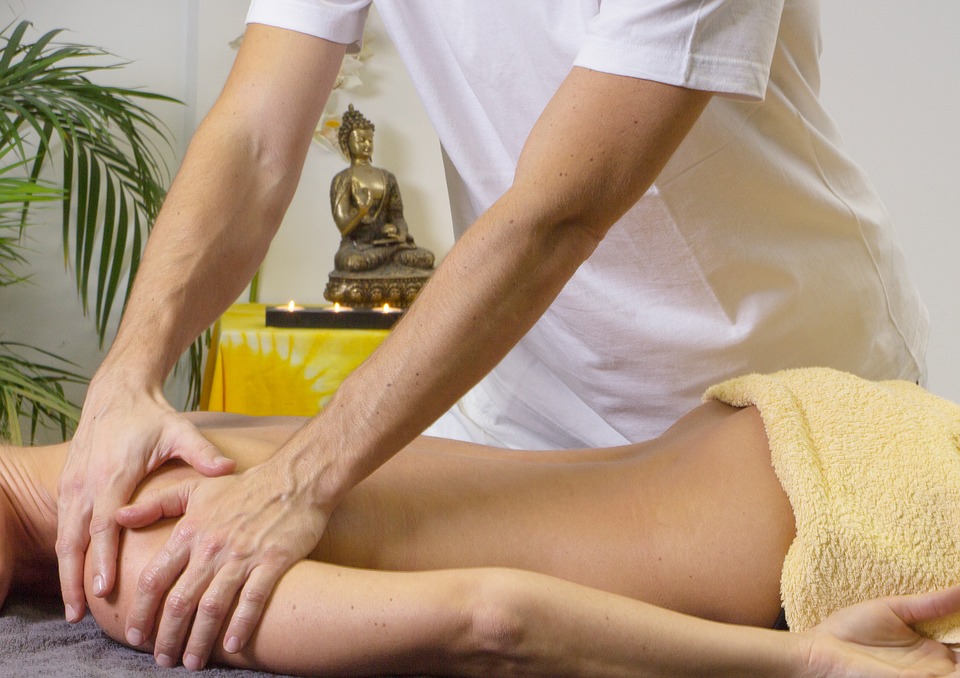Anxiety can feel like a shadow that follows you everywhere. It creeps in during quiet moments, disrupts your thoughts, and sometimes even paralyzes you with worry. You’re not alone if you’ve felt overwhelmed by anxiety’s grip. It’s a common experience for many people navigating the complexities of daily life. Managing anxiety doesn’t have to be an uphill battle. With the right strategies and tools, it’s possible to reclaim control over your thoughts and emotions. In this blog post, we’ll explore practical tips that can help ease anxiety and pave the way for a more peaceful existence. From understanding what triggers those anxious feelings to embracing lifestyle changes that promote wellness, every step counts on this journey toward relief. Let’s dive into these effective techniques together.
Understanding Anxiety and Its Effects
Anxiety is a natural response to stress. It’s our body’s way of signaling danger. Many people experience physical symptoms like rapid heartbeat, sweating, and fatigue. These reactions are not just in the mind; they manifest throughout the body. Emotional effects can be equally challenging. Feelings of dread, irritability, or restlessness may arise unexpectedly. The mental toll often leads to difficulties in concentration and decision-making. Simple tasks might feel insurmountable.
Identifying Triggers and Causes of Anxiety
Understanding what triggers anxiety is crucial for managing it effectively. Each person’s experience is unique, shaped by their past and present situations. Common triggers can include stressful events like job interviews or relationship issues. Even everyday tasks might evoke feelings of dread for some individuals. Take time to reflect on your experiences. Keep a journal detailing moments when you felt anxious. Note the specific circumstances surrounding those times.
Shifting Lifestyle to Manage Anxiety

Making small shifts in your daily routine can significantly impact anxiety levels. Start with physical activity. Exercise releases endorphins, those feel-good hormones that help reduce stress. Nutrition also plays a vital role. A balanced diet rich in fruits, vegetables, lean proteins, and whole grains fuels the body and mind. Avoid excessive caffeine and sugar; they can heighten feelings of anxiety. Sleep is another critical factor. Aim for seven to nine hours per night. A consistent sleep schedule helps regulate mood and energy levels throughout the day.
Desiring Professional Help for Severe Anxiety
When anxiety becomes overwhelming, seeking professional help is a vital step. They can help you explore the underlying causes of your anxiety. Understanding these factors often leads to effective coping strategies. Cognitive-behavioral therapy (CBT) is one popular approach that many find beneficial. It focuses on changing negative thought patterns and behaviors associated with anxiety.
Considering Mindfulness Techniques for Reducing Anxiety
Mindfulness techniques offer a powerful way to combat anxiety. They help anchor you in the present moment, reducing racing thoughts. Start with simple breathing exercises. Focus on each inhale and exhale. Notice how your body feels with every breath. This practice can create an immediate sense of calm. Guided meditations are also beneficial. Many apps provide short sessions tailored for anxiety relief, making them easy to fit into a busy schedule.
Managing anxiety is a journey, not a destination. It’s important to remember that you’re not alone in this struggle. Many people face similar challenges and have found ways to navigate through the waves of anxiety. By understanding its effects on your life, identifying triggers, and making necessary lifestyle changes, you can take meaningful steps toward relief. Mindfulness techniques can play a critical role too practices like meditation or deep breathing exercises help ground you in the present moment. Don’t underestimate the power of support systems as well. Building strong connections with friends and family offers comfort during tough times. Engaging with professionals when needed can provide additional insight into managing severe anxiety effectively.…




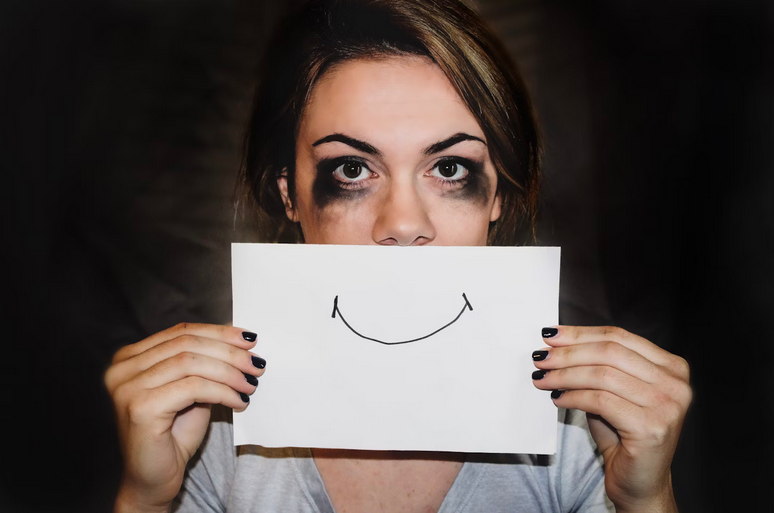



 Bloating and constipation are very common digestive issues that can be extremely uncomfortable. While there are different causes of these conditions, you can also follow some simple tips to help prevent them.
Bloating and constipation are very common digestive issues that can be extremely uncomfortable. While there are different causes of these conditions, you can also follow some simple tips to help prevent them.
 Abdominal pain can be a symptom of various conditions, some of them serious. If you’re experiencing abdominal pain, kindly visit a doctor so they can determine the cause. Don’t try to self-diagnose or treat your abdominal pain with over-the-counter medication. This could mask a more serious condition.
Abdominal pain can be a symptom of various conditions, some of them serious. If you’re experiencing abdominal pain, kindly visit a doctor so they can determine the cause. Don’t try to self-diagnose or treat your abdominal pain with over-the-counter medication. This could mask a more serious condition.
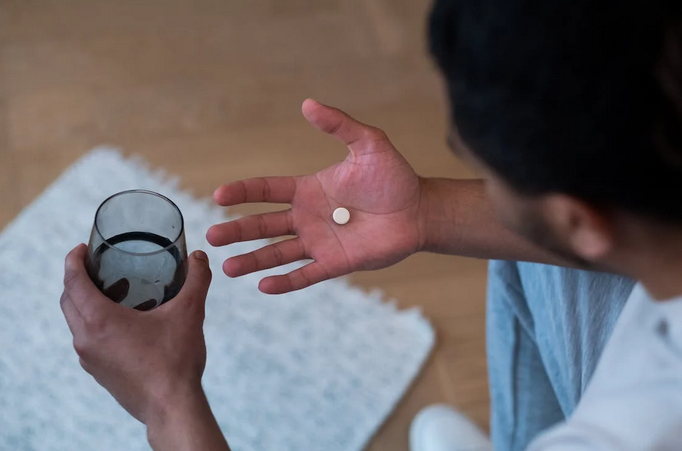 Another critical consideration is therapeutic dosages. When it comes to nootropics, more is not always better. Taking too high of a dose can be harmful. That’s why it’s crucial to find a product with the right amount of active ingredients for you. To do this, you’ll need to know your body weight and the recommended dosage for the nootropic you’re interested in taking.
Another critical consideration is therapeutic dosages. When it comes to nootropics, more is not always better. Taking too high of a dose can be harmful. That’s why it’s crucial to find a product with the right amount of active ingredients for you. To do this, you’ll need to know your body weight and the recommended dosage for the nootropic you’re interested in taking. Finally, you’ll also want to consider the price of the supplement. Nootropics can range in price from a few dollars to hundreds of dollars. So, it’s crucial to find a product that fits within your budget. However, you also want to ensure you’re getting a quality product. To do this, it’s important to read customer reviews and compare prices.
Finally, you’ll also want to consider the price of the supplement. Nootropics can range in price from a few dollars to hundreds of dollars. So, it’s crucial to find a product that fits within your budget. However, you also want to ensure you’re getting a quality product. To do this, it’s important to read customer reviews and compare prices.
 One of the most common concerns with taking testosterone boosters is the potential for side effects. While there are some potential side effects associated with taking these supplements, they are generally considered safe when used as directed. The most common side effects include:
One of the most common concerns with taking testosterone boosters is the potential for side effects. While there are some potential side effects associated with taking these supplements, they are generally considered safe when used as directed. The most common side effects include: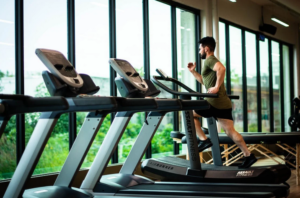 There are a few key things that men can do to increase their testosterone levels
There are a few key things that men can do to increase their testosterone levels
 The first problem facing the healthcare sector is the rising cost of care. With the cost of health insurance premiums and prescription drugs rising, many people struggle to afford the care they need. It is especially true for those with chronic conditions that require expensive treatments. One way to solve this problem is to increase transparency in pricing. It would allow patients to compare shops for the best prices of care and medications.
The first problem facing the healthcare sector is the rising cost of care. With the cost of health insurance premiums and prescription drugs rising, many people struggle to afford the care they need. It is especially true for those with chronic conditions that require expensive treatments. One way to solve this problem is to increase transparency in pricing. It would allow patients to compare shops for the best prices of care and medications. These are just a few of the problems facing the healthcare sector today. However, there are potential solutions to these problems. By increasing transparency in pricing, expanding access to care, and increasing funding for medical schools and residency programs, we can help to improve the healthcare sector and ensure that everyone has access to the care they need.…
These are just a few of the problems facing the healthcare sector today. However, there are potential solutions to these problems. By increasing transparency in pricing, expanding access to care, and increasing funding for medical schools and residency programs, we can help to improve the healthcare sector and ensure that everyone has access to the care they need.…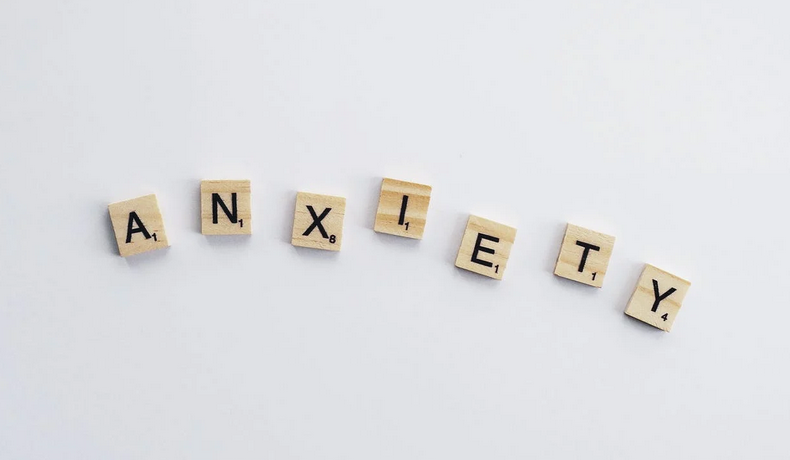
 First, let’s start with the most obvious sign: excessive worries. If you find yourself worrying more than usual or if your fears interfere with your daily life, it may signify anxiety disorder. Anxiety can cause you to worry about things that are usually not worth worrying about. For example, you may worry about your health even though you are perfectly healthy. Or, you may worry about what other people think of you even though you don’t know them.
First, let’s start with the most obvious sign: excessive worries. If you find yourself worrying more than usual or if your fears interfere with your daily life, it may signify anxiety disorder. Anxiety can cause you to worry about things that are usually not worth worrying about. For example, you may worry about your health even though you are perfectly healthy. Or, you may worry about what other people think of you even though you don’t know them. Now that you’ve learned some symptoms that impact one’s physical condition, let’s look at how anxiety disorders affect your body. Muscle tension is one of the most common physical symptoms of anxiety. If you suffer from muscle tension, you may feel tightness in your shoulders, neck, or back. You may also experience headaches and jaw pain. Muscle tension can make it difficult to concentrate and can cause fatigue. If you are experiencing muscle tension, it is essential to get help from a mental health professional as soon as possible. As you can see, anxiety disorders can cause various physical and mental symptoms.
Now that you’ve learned some symptoms that impact one’s physical condition, let’s look at how anxiety disorders affect your body. Muscle tension is one of the most common physical symptoms of anxiety. If you suffer from muscle tension, you may feel tightness in your shoulders, neck, or back. You may also experience headaches and jaw pain. Muscle tension can make it difficult to concentrate and can cause fatigue. If you are experiencing muscle tension, it is essential to get help from a mental health professional as soon as possible. As you can see, anxiety disorders can cause various physical and mental symptoms.
 Another thing to keep in mind is to use the correct golf equipment. If you’re using golf clubs that are too heavy or too light for you, it can put a lot of strain on your body and lead to injuries. The same goes for golf balls. If you’re using a golf ball that’s too hard, it can cause severe damage to your joints and muscles. Make sure to get fitted for golf clubs to use the right ones for your size and strength.
Another thing to keep in mind is to use the correct golf equipment. If you’re using golf clubs that are too heavy or too light for you, it can put a lot of strain on your body and lead to injuries. The same goes for golf balls. If you’re using a golf ball that’s too hard, it can cause severe damage to your joints and muscles. Make sure to get fitted for golf clubs to use the right ones for your size and strength. Finally, when playing golf, it’s essential to have good posture. Many golf injuries happen because people slouch when they swing or don’t keep their spine straight. That’s why it’s so important to focus on your posture and make sure that you’re standing up straight. Good posture will help you avoid back pain and other golf-related injuries.
Finally, when playing golf, it’s essential to have good posture. Many golf injuries happen because people slouch when they swing or don’t keep their spine straight. That’s why it’s so important to focus on your posture and make sure that you’re standing up straight. Good posture will help you avoid back pain and other golf-related injuries.
 Knowing if an online pharmacy is legitimate is to check if your health insurance approves them. If your insurance company has a list of approved pharmacies, the chances are that these pharmacies are safe to use. You can also call the customer service number on your insurance card and ask if they have any recommendations for online pharmacies.
Knowing if an online pharmacy is legitimate is to check if your health insurance approves them. If your insurance company has a list of approved pharmacies, the chances are that these pharmacies are safe to use. You can also call the customer service number on your insurance card and ask if they have any recommendations for online pharmacies. One final way to know if an online pharmacy is legitimate is to read reviews from other customers. There are many websites where you can read reviews of different online pharmacies. This is a great way to get unbiased opinions about a particular pharmacy. You can also ask your friends and family if they have any recommendations for online pharmacies. With so many online pharmacies available, it can be hard to determine which safe and trustworthy ones. However, by considering a few key factors, you can decide where to buy your medication. We hope these tips have helped and that you will find the perfect online pharmacy for all of your needs.…
One final way to know if an online pharmacy is legitimate is to read reviews from other customers. There are many websites where you can read reviews of different online pharmacies. This is a great way to get unbiased opinions about a particular pharmacy. You can also ask your friends and family if they have any recommendations for online pharmacies. With so many online pharmacies available, it can be hard to determine which safe and trustworthy ones. However, by considering a few key factors, you can decide where to buy your medication. We hope these tips have helped and that you will find the perfect online pharmacy for all of your needs.…







 of penis massage invented by Arabs more than 1,000 years ago and used as a method for
of penis massage invented by Arabs more than 1,000 years ago and used as a method for  exercises such as jelqing and stretching, various products can help you achieve natural penis enlargements, such as the penis extender and the penis pump. The latter is also a popular sex toy that increases erectile function.
exercises such as jelqing and stretching, various products can help you achieve natural penis enlargements, such as the penis extender and the penis pump. The latter is also a popular sex toy that increases erectile function.
 We are living in times where most information about various things, including CBD, can be found online. This fact has led many people to try out new medication without talking to a doctor. The first thing you should consider doing before buying any CBD product is talking to your doctor.
We are living in times where most information about various things, including CBD, can be found online. This fact has led many people to try out new medication without talking to a doctor. The first thing you should consider doing before buying any CBD product is talking to your doctor. The third factor that is essential to consider when buying CBD for anxiety is the ingredients used. CBD products are not made equally. The ingredients used in making various products tend to have different ingredients.
The third factor that is essential to consider when buying CBD for anxiety is the ingredients used. CBD products are not made equally. The ingredients used in making various products tend to have different ingredients.
 The six-pack doesn’t come from the abdominal crunches alone. A flat stomach and visible muscles can be achieved 70 percent with nutrition and 30 percent with training. Muscles can only be seen with a maximum
The six-pack doesn’t come from the abdominal crunches alone. A flat stomach and visible muscles can be achieved 70 percent with nutrition and 30 percent with training. Muscles can only be seen with a maximum  the stomach are particularly stubborn. However, targeted abdominal muscle exercises do not directly reduce the fat on the abdomen, but rather train the muscles below the fat layer. A negative calorie balance, which can be achieved through a healthy diet and regular endurance training is important for permanent fat reduction, including on the stomach.
the stomach are particularly stubborn. However, targeted abdominal muscle exercises do not directly reduce the fat on the abdomen, but rather train the muscles below the fat layer. A negative calorie balance, which can be achieved through a healthy diet and regular endurance training is important for permanent fat reduction, including on the stomach. should take a day off or just do a very light workout. Because the heavily used muscles have to regenerate. Normally, you will also notice that the muscles initially decrease significantly in performance after an intensive training session, and then after a phase of recovery, they are more efficient than before. Muscles are not built up during training itself, but rather in the recovery phase after training.…
should take a day off or just do a very light workout. Because the heavily used muscles have to regenerate. Normally, you will also notice that the muscles initially decrease significantly in performance after an intensive training session, and then after a phase of recovery, they are more efficient than before. Muscles are not built up during training itself, but rather in the recovery phase after training.…





 Being new to pheromones will be more confusing if you go straight to brochures or display sections of online stores. Labels of products may not give all the information you need. Some details may also be jargon to you. It is best if you search for some critic reviews.
Being new to pheromones will be more confusing if you go straight to brochures or display sections of online stores. Labels of products may not give all the information you need. Some details may also be jargon to you. It is best if you search for some critic reviews. Online stores can also play an important role when buying products. Are they selling quality products? Do they assist you with what you want? Online stores should have friendly, competent, and honest customer support.
Online stores can also play an important role when buying products. Are they selling quality products? Do they assist you with what you want? Online stores should have friendly, competent, and honest customer support.









 According to Michelle Peace, a top toxicologist from the Virginia Common Wealth University, anything that is inhaled can cause health problems when the dosing is wrong. Absorption is tremendously effective when a substance is inhaled. That said, vaped CBD is four times stronger. This explains some of the emergency hospital visits linked to vaping CBD. Studies on this risk factor are inconclusive. More research is being done to ascertain that dosing could lead to more severe side effects. In the meantime, reasonable dosing is recommended.
According to Michelle Peace, a top toxicologist from the Virginia Common Wealth University, anything that is inhaled can cause health problems when the dosing is wrong. Absorption is tremendously effective when a substance is inhaled. That said, vaped CBD is four times stronger. This explains some of the emergency hospital visits linked to vaping CBD. Studies on this risk factor are inconclusive. More research is being done to ascertain that dosing could lead to more severe side effects. In the meantime, reasonable dosing is recommended. Research done at the John Hopkins University showed that some vaping devices have metallic coils. When heated, they can leech heavy metals such as nickel and chromium. Eventually, you inhale these metals. Unfortunately, these metals pose a myriad of health risks. Researchers are yet to establish how serious these risks are as well after how long they start taking root in the body.
Research done at the John Hopkins University showed that some vaping devices have metallic coils. When heated, they can leech heavy metals such as nickel and chromium. Eventually, you inhale these metals. Unfortunately, these metals pose a myriad of health risks. Researchers are yet to establish how serious these risks are as well after how long they start taking root in the body.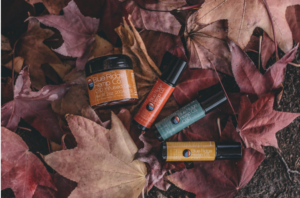 Some CBD vape brands are nothing but adulterated CBD vape oil. Such juices may have a high level of toxicity. If you buy poor quality CBD oil, you might end up at the hospital. People who have gone through such an ordeal reported having hallucinations, liver, and mental health issues. To steer clear from toxicity, you have to purchase pure CBD products from legitimate and reputable brands. These companies need to be well regulated.
Some CBD vape brands are nothing but adulterated CBD vape oil. Such juices may have a high level of toxicity. If you buy poor quality CBD oil, you might end up at the hospital. People who have gone through such an ordeal reported having hallucinations, liver, and mental health issues. To steer clear from toxicity, you have to purchase pure CBD products from legitimate and reputable brands. These companies need to be well regulated.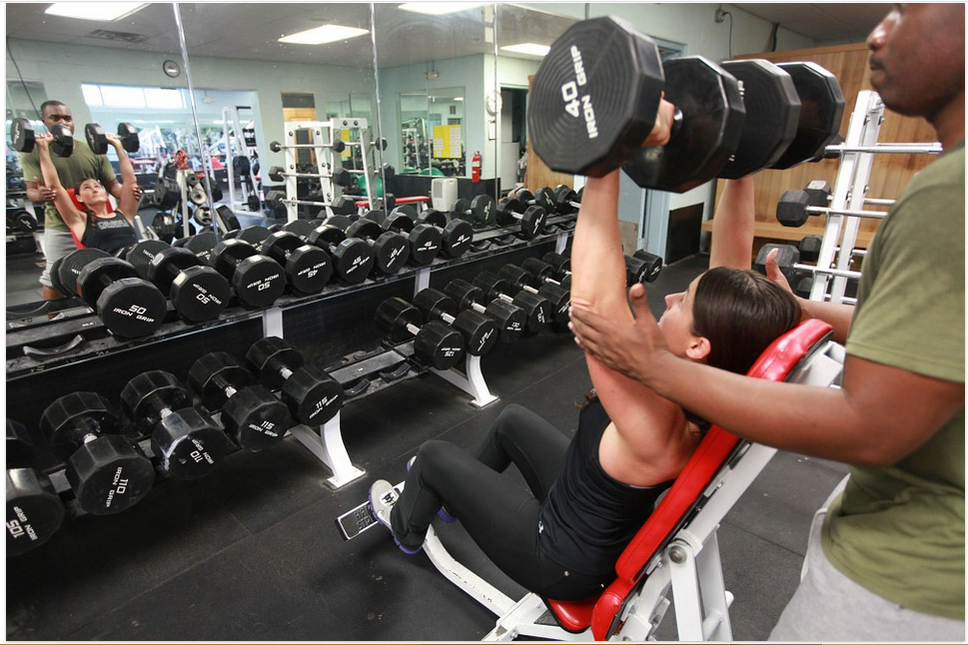


 Competent Services
Competent Services


 Arthritis can be age-related and habit-related. Knees, elbows, wrists, ankles, necks, and even fingers are the parts where joint inflammation is most likely to take place. And once this condition happens, recovery will be arduous. Some supplements claim to help your body to regenerate joint tissue. You can read this article on JointHealthGuide.org to investigate further.
Arthritis can be age-related and habit-related. Knees, elbows, wrists, ankles, necks, and even fingers are the parts where joint inflammation is most likely to take place. And once this condition happens, recovery will be arduous. Some supplements claim to help your body to regenerate joint tissue. You can read this article on JointHealthGuide.org to investigate further. Muscle tear is a condition that is most likely to happen to heavyweight lifters. However, all athletes or workout junkies are supposed to include weight training once in a while. And thus, you have to be aware of this condition too.
Muscle tear is a condition that is most likely to happen to heavyweight lifters. However, all athletes or workout junkies are supposed to include weight training once in a while. And thus, you have to be aware of this condition too.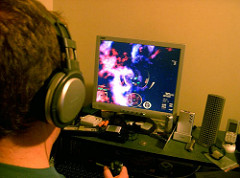
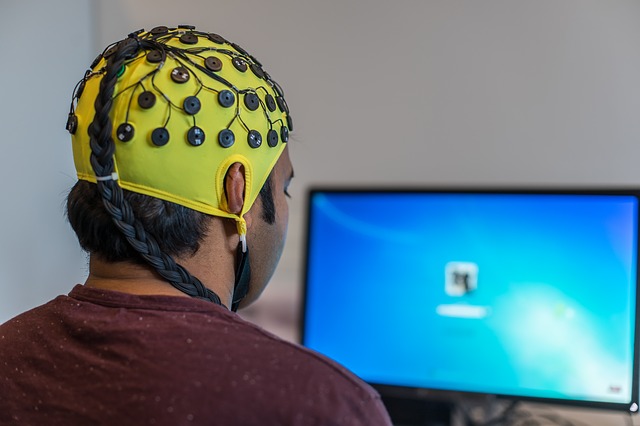 Positive Reviews
Positive Reviews
 Skipping meals is actually one of the main causes of weight gain. When you skip one meal you will be very hungry and the next time you eat you will probably overeat. Therefore, you need to eat on time and always remember to watch your portions.
Skipping meals is actually one of the main causes of weight gain. When you skip one meal you will be very hungry and the next time you eat you will probably overeat. Therefore, you need to eat on time and always remember to watch your portions.
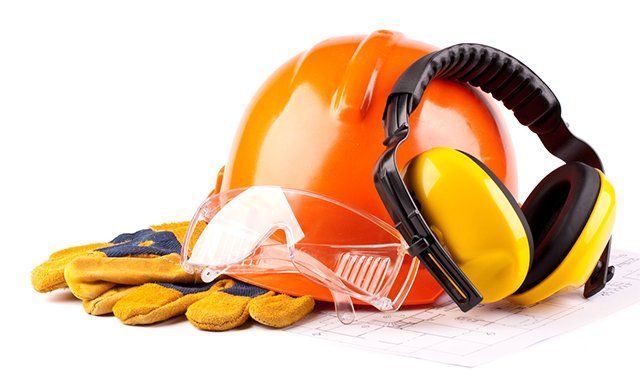
 Training your employees is an excellent way to avoid injuries. You need to make sure that your employees have some basic skills in dealing with accidents. Your employees need to know how to prevent accidents by taking precautionary measures.
Training your employees is an excellent way to avoid injuries. You need to make sure that your employees have some basic skills in dealing with accidents. Your employees need to know how to prevent accidents by taking precautionary measures.



 counter pedometer is that it will motivate to carry on with your exercise. It is able to count the steps you take, and therefore you will be in a position to know if you have reached your set target. There are several things you need to understand about using the step counter pedometer which include:
counter pedometer is that it will motivate to carry on with your exercise. It is able to count the steps you take, and therefore you will be in a position to know if you have reached your set target. There are several things you need to understand about using the step counter pedometer which include:




 The reason why many people continue to wallow in addiction is that they have never acknowledged the problem. It is important to first come to terms with the problem. If you cannot go a day without taking alcohol, then the truth is that you have an alcoholism problem.
The reason why many people continue to wallow in addiction is that they have never acknowledged the problem. It is important to first come to terms with the problem. If you cannot go a day without taking alcohol, then the truth is that you have an alcoholism problem. You need to look for a rehab facility that will help you deal with addiction.
You need to look for a rehab facility that will help you deal with addiction. 



 When you study the major components in cannabis, you will note CBD and THC. The chemicals are present in high concentrations notwithstanding the way the plant is grown. In fact, even recreational marijuana has a lot of CBD. Nowadays, some farmers can grow marijuana plants that have a lot of CBD and less THC. Fortunately; the strains are becoming more every year. People need benefits of CBD oil without harmful side effects of taking THC.
When you study the major components in cannabis, you will note CBD and THC. The chemicals are present in high concentrations notwithstanding the way the plant is grown. In fact, even recreational marijuana has a lot of CBD. Nowadays, some farmers can grow marijuana plants that have a lot of CBD and less THC. Fortunately; the strains are becoming more every year. People need benefits of CBD oil without harmful side effects of taking THC. CBD oil has a lot of health benefits to offer. For instance, it helps people who experience vomiting and nausea or those that have undergone chemotherapy. Moreover, it is useful at suppressing seizures, which affect some people on a routine basis. Another important benefit is that it combats neurodegenerative disorders and inflammation. Studies have shown that it is great for anxiety sufferers and depression sufferers. Thus, if you suffer from such conditions, you will need to consult your physician about taking CBD oil.
CBD oil has a lot of health benefits to offer. For instance, it helps people who experience vomiting and nausea or those that have undergone chemotherapy. Moreover, it is useful at suppressing seizures, which affect some people on a routine basis. Another important benefit is that it combats neurodegenerative disorders and inflammation. Studies have shown that it is great for anxiety sufferers and depression sufferers. Thus, if you suffer from such conditions, you will need to consult your physician about taking CBD oil.
 Ask dentists around and they will all recommend the use of soft toothbrush bristles. There is a good reason for this. The hard and stiff bristles only damage your teeth and gums. As you brush, the tissue around your teeth will be damaged. This will create tooth sensitivity and increase chances for teeth cavity.
Ask dentists around and they will all recommend the use of soft toothbrush bristles. There is a good reason for this. The hard and stiff bristles only damage your teeth and gums. As you brush, the tissue around your teeth will be damaged. This will create tooth sensitivity and increase chances for teeth cavity. We all love different colors for our toothbrushes. Have you ever wondered why you choose, for instance, purple toothbrush and not any other color? Your favorite color always informs your choice of a brush. With a pleasant color, you will be tempted to brush your teeth more often. This can be psychologically explained. So the next time you are buying a brush for your teeth, ensure that you choose a color that is on your favorite list.
We all love different colors for our toothbrushes. Have you ever wondered why you choose, for instance, purple toothbrush and not any other color? Your favorite color always informs your choice of a brush. With a pleasant color, you will be tempted to brush your teeth more often. This can be psychologically explained. So the next time you are buying a brush for your teeth, ensure that you choose a color that is on your favorite list.


 After you have found the best food delivery services providers, you will realize that the menus that they provide are expanding daily. Since menu planning is one of the most challenges that most people are facing while at the kitchen, a food delivery service will get you out of this problem by providing you with the best menu options that will suit your diet needs. Therefore, after you have ordered a particular type of food, they will plan out an entire menu, and you will receive your food at the right time and place.
After you have found the best food delivery services providers, you will realize that the menus that they provide are expanding daily. Since menu planning is one of the most challenges that most people are facing while at the kitchen, a food delivery service will get you out of this problem by providing you with the best menu options that will suit your diet needs. Therefore, after you have ordered a particular type of food, they will plan out an entire menu, and you will receive your food at the right time and place. This is the best part about ordering food for yourself or your family. For instance, if you feel tired and you are unable to go to your kitchen to cook, the best option you need to consider is the food delivery services. Also, if you are planning to throw a party for your friends, it will be easier to order the best food for your friends instead of spending a lot of time in the kitchen.…
This is the best part about ordering food for yourself or your family. For instance, if you feel tired and you are unable to go to your kitchen to cook, the best option you need to consider is the food delivery services. Also, if you are planning to throw a party for your friends, it will be easier to order the best food for your friends instead of spending a lot of time in the kitchen.…
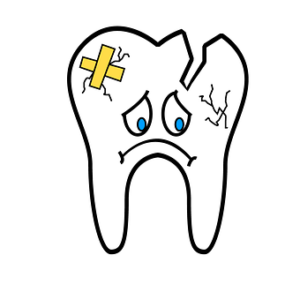 Your teeth can get damaged as a result of teeth trauma or decay. Various techniques can be used to discover tooth decay. These methods include fluorescent methods and x-rays.
Your teeth can get damaged as a result of teeth trauma or decay. Various techniques can be used to discover tooth decay. These methods include fluorescent methods and x-rays. 
